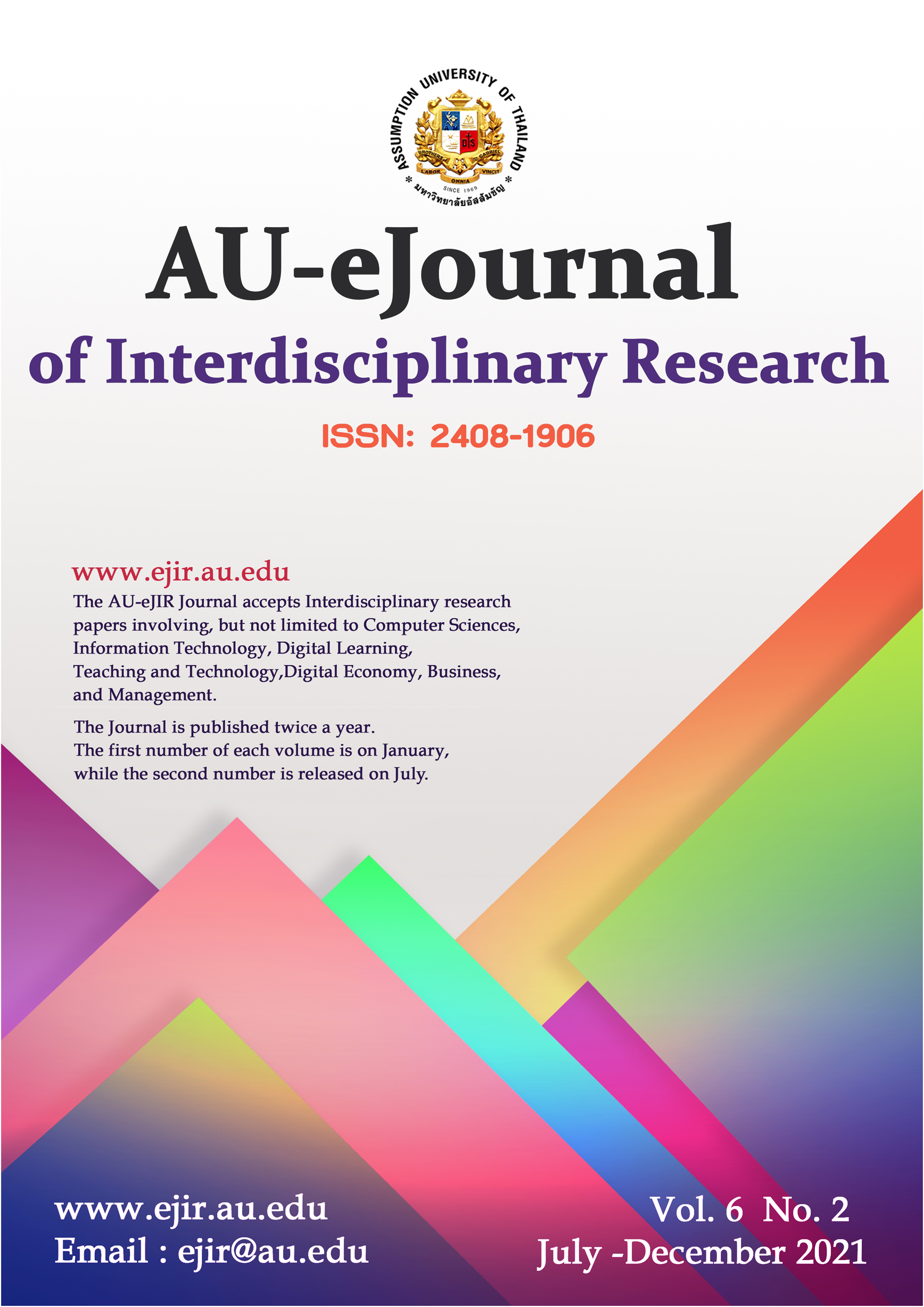PARENTS PERSPECTIVES ON HOMESCHOOLING MANAGEMENT MODEL IN BANGKOK, THAILAND
Abstract
The objectives of this study were to 1) investigate the reasons for choosing homeschooling of the Thai families in Bangkok; 2) explore the different activities or forms of Thai homeschooling families choose to engage their children in Bangkok; and 3) identify the social interaction skills of the homeschooled children from the Thai families in Bangkok; 4) study the academic outcome of the homeschooled children from the Thai families in Bangkok. The research was conducted with 44 Thai homeschooling families in Bangkok. The sample were families who chose to homeschool the children. The sampling technique was non-probability sampling method with purposive sampling plan to recruit samples to participate in the study. The open-ended questions were applied as the research instrument. The content validity with the S-CVI procedure was applied to measure the validity of the question items. The rating of 1.00, which was suitable for evaluating the content validity of the questions was revealed to ensure that the questions were valid. All 44 families had completed the questions. Among them, there were additional in-depth interviews with 10 families. The results from the qualitative data showed that the homeschooling families were generally satisfied with their children’s performance and learning outcome. Feedback from both the children and the parents suggest that homeschooling is more flexible and easier to adapt to different needs and situations of children while comparing to formal school system.
References
Carnie, F. (2003). Home-based education. Alternative Approaches to Education: a guide for parents and teachers (pp.132-149). Routledge Falmer, Taylor & Francis Group. London and New York.
Cheng, A. & Donnelly, M. (2019). New Frontiers in Research and Practice on Homeschooling. Peabody Journal of Education, 94(3), 259-262, DOI: 10.1080/0161956X.2019.1617576
Clery, E. (1998). Homeschooling: The meaning that the homeschooled child assigns to this experience. Issues in Educational Research, 8(1), 1998, 1-13. Retrieved 27th May, 2020, from http://www.iier.org.au/iier8/clery.html
Edarabia (2020). Thailand School Fees by Grade (2020). Retrieved 22nd April, from https://www.edarabia.com/thailand-schoolfees/#:~:text=Thailand%20School%20Fees%20by%20Grade%20(2020)&text=The%20average%20school%20fees%20in,range%20from%20%241%2C800%20to%20%2424%2C000.
Engchun, R., Sungton, E., & Haruthaithanasan, T. (2017). Homeschooling in Southern Thailand: Status and proposed guidelines for learning process management [Electronic version]. Kasetsart Journal of Social Sciences 39, 502-508.
Jaisangsan, B. (2012). Special problems about Home School (ปัญหาพิเศษเรื่องบ้านเรียน). Part of the report related to special problems in education, Developmental Psychology Program, Department of Psychology, Faculty of Social Sciences, Kasetsart University. Retrieved20th May, 2020, from https://www.homeschoolnetwork.org/storage/app/uploads/backports/Homeschool/Home-School-Thesis.pdf
Luttenegger, J. (1999). The need for technology in homeschooling [Electronic version]. Graduate Research Papers. University of Northern Lowa.
May, A. (2017). How homeschooling supports social-emotional development in children. The Mulberry Journal. Retrieved 20th May, 2020, from https://themulberryjournal.com/writing-collective/the-whole-child/homeschooling-supports-social-emotional-development-children
Office of the Education Council (2009). The Follow up Evaluation for Homeschooling Development. Bangkok: Office of the Education Council.
Ray, B. (2016). A Review of research on Homeschooling and what might educators learn? Porpoises, 28(2), 83.
Rahma, R. A, Lestari, G. D, & Nugroho, R. (2018). The Social Emotional Development of Homeschooling Children. Journal of Nonformal Education: JNE 4(2). Department of Nonformal Education, Faculty of Education, Universitas Negeri Malang, Indonesia
Saavedra, J. (2020). Educational challenges and opportunities of the Coronavirus (COVID-19) pandemic. Education for Global Development. World Bank Blogs. Retrieved 27th May, 2020, from https://blogs.worldbank.org/education/educational-challenges-and-opportunities-covid-19-pandemic
Udom, S. (2005). Home School: To create your own wealth (โฮมสคูล: การสร้างอริยทรัพย์แห่งตน). Library Journal of Thaksin University, (pp.77-84): issue of 2005.7-12, 2nd edition.
Yana, N., Siwarom, S., Bunrayong, W., Kampe, K. L., & Sariyant, T. (2018). Learning @ Home: The Voice of A Homeschool Mother [Electronic version]. Humanities, Arts and Social Science Studies, 18(3), 663-681. Retrieved 28 November, 2019 from https://www.tci-thaijo.org/index.php/hasss/article/download/109478/119936/
Yingyongdamrongrit, S. (2008). Learning process management of home school group according to the National Education Act B.E. 2542. Unpublished Doctor’s thesis, Srinakharinwirot University of Thailand, Bangkok, Thailand.





